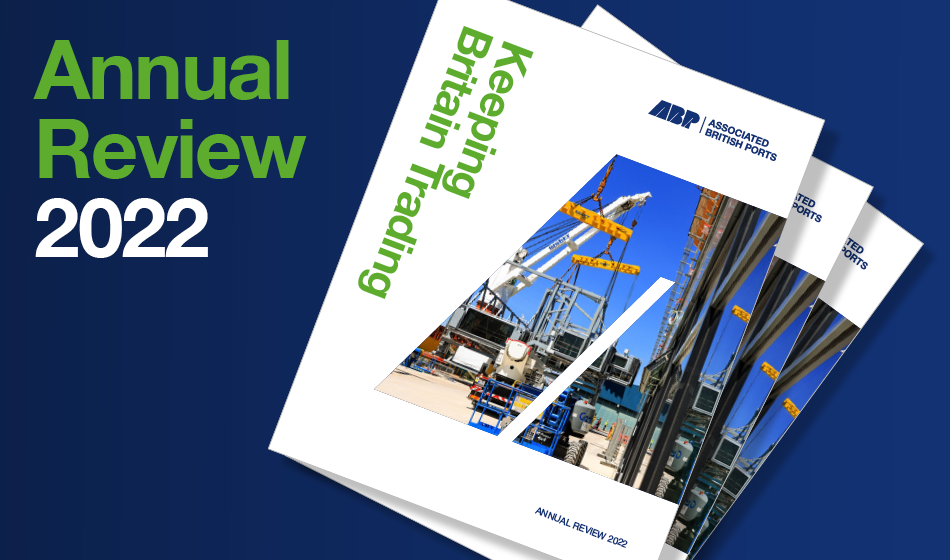ABP’s Annual Review 2022
Associated British Ports (ABP), the UK’s leading ports group, has published its Annual Review 2022, reflecting on its success in “Keeping Britain Trading”, and its many achievements in the past year as it supported its customers throughout a challenging period.
ABP’s Annual Review 2022 demonstrates how ABP is investing to build more resilient, sustainable supply chains, embracing innovative new equipment and technology, building infrastructure, and enabling trade and economic growth in regions and coastal communities around the country.
The year saw several industry firsts in the field of technology and sustainability, including the arrival of two fully ‘mains powered’ electric cranes at Ipswich, and the world’s largest hydraulic crane at Immingham. ABP also became the first organisation in the UK to invest in innovative wearable safety devices and the first UK port operator to provide a new range of Personal Protective Equipment (PPE) workwear with an SA8000 certification of social responsibility.
ABP’s Chief Executive Officer, Henrik L. Pedersen said:
“Our port operations continue to lead the industry thanks to our people and our continuous investments, such as upgrading our Humber container terminals, building new warehouses for our customers, and acquiring new cranes and port equipment, powered by biofuel, electricity, and a significant amount of solar power.
“In 2021, we invested over £150 million in our ports, as we continue to embrace technological advances, such as launching the first private 5G network of any UK mainland port and being the first to install commercial shore power connectivity in the UK at our Port of Southampton.”
Maritime Minister Robert Courts said:
“New technology and sustainability are key to maintaining the UK’s strong position in international trade, and it’s great to see Associated British Ports take these all-important steps to secure our maritime sector's green legacy.
“We’ve faced unprecedented challenges over the last few years and this annual review shows just how innovative the UK’s maritime sector is.
“As we move towards net-zero emissions, I hope to see more industry leaders follow in their footsteps and strive towards a greener future.”
To date, ABP has invested over £60 million across its ports in electric/hybrid equipment and on-site solar arrays and wind turbines, which has contributed to a reduction of over 35% carbon emissions in its port operations. ABP is also at the heart of the renewable energy sector, supporting the continued growth of the Offshore Wind industry and the development deployment of new technologies such as hydrogen and carbon, capture and storage.
ABP’s ports are primed and ready for the UK’s transition to alternative and low carbon energy production and following the success of Green Port Hull, and Lowestoft Eastern Energy Facility (LEEF), ABP launched its ambitious plans for South Wales in its Future Ports: Wales Vision, with Floating Offshore Wind (FLOW) at its core in November 2021. ABP’s five ports in South Wales, (Swansea, Port Talbot, Barry, Cardiff, and Newport) will play a pivotal role in the coming transformation of logistics, energy generation and manufacturing towards a low carbon economy.
ABP’s 21 ports are delivering on their mission of Keeping Britain Trading, and leading the industry in safety, sustainability, and innovation.


